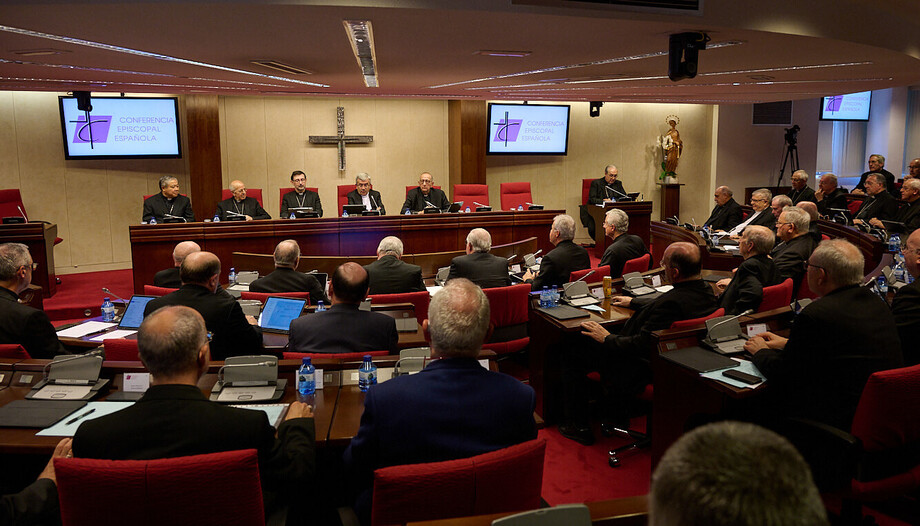The Spanish bishops gathered at a meeting of the extraordinary plenary meeting, the fifth in its history, they have approved three documents: the Integral Reparation Plan to minors and persons with equal rights, victims of sexual abuse, the lines of work including this remediation plan as well as the guiding criteria for comprehensive reparation for victims of sexual abuse of minors or adults in law.
At the conclusion of this Extraordinary Plenary Assembly, the President of the Spanish Episcopal Conference, Msgr. Luis Argüello has emphasized that this plan of Comprehensive Repair focuses especially on those cases that "have the doors closed" due to the civil statute of limitations, death of the perpetrator or other situations.
"This reparation plan wants to be subsidiary. When legal, civil, criminal, canonical or civil remedies have ended or the possible means of reparation have ended, the Church keeps its doors open to listen to any victim," stressed the president of the Spanish bishops.
In addition to the documents, the bishops have approved the constitution of an advisory commission, made up of people from various fields, including the Church, psychology and people close to victims' associations. This commission will have its own rules of procedure to know how to act.
At the press conference given by Argüello together with the president of CONFER, Jesús M. Díaz Sariego, the president of the Spanish bishops asked the public administrations and society to respect the rules of operation of the Church and explained that "it is not a decree-law, which obliges but rather, in the Church we provide ourselves with criteria of communion so that those people who decide they have the right to this reparation can go to a diocese, or to an advisory commission to address the path of reparation".
The Church has affirmed Luis ArgüelloI know that nothing by itself can heal the pain suffered by so many victims of abuse, but we express our firm commitment to continue on this path of reparation and collaboration with the prosecution and the forces of the state when these crimes occur.
This plan foresees that in the hypothetical case that a victim does not find shelter in one instance of the Church, diocese or congregation, he or she can always turn to "another door" to follow his or her path of reparation.
Comprehensive repair
This reparation plan will address the process from different areas and is born, to a large extent, from the listening done from different areas of the Church to victims of abuse in recent years.
The president of the bishops wanted to point out that "an integral reparation requires time, people and economic compensation. There is money, but also time and people. The Church responds with the resources of its communion of life and its communion of goods to whatever it has to deal with".
This means that, in addition to the work of accompaniment, prevention and formation that is already being carried out, the Church will have to assume possible financial compensation for victims of abuse.
Also in the subsequent press conference, the president of the EEC explained that he "is not the head of the bishops" and that what has been approved in this extraordinary assembly cannot be obliged to comply with it, but he stressed that the fact that it has been approved practically unanimously by the bishops, gives to understand the commitment of the Spanish Church in this case.
A plan born out of commitment, not obligation
In relation to the qualification of unilaterality, that shortly before a member of the Government of Spain put on this reparation plan, the president of the bishops of Spain wanted to emphasize that "of course it is unilateral. It is our decision, which responds to a moral obligation, not a juridical one, on our own initiative". Argüello has turned this reproach of the government around, pointing out that for them it is "a recognition because when the legal way is closed, a non-legal door has to be opened".
Both Argüello and Díaz Sariego emphasized the Church's willingness to work together with other social and governmental bodies in the fight against abuse.
A work of years
"The Church's work of reparation does not begin or end today," Bishop Argüello stressed. In this sense, both the president of the bishops, together with the president of the Spanish Conference of Religious, recalled the path that the Church took "more than 20 years ago when these cases of people abused by members of our communities became known" and, especially, in the last six years.








